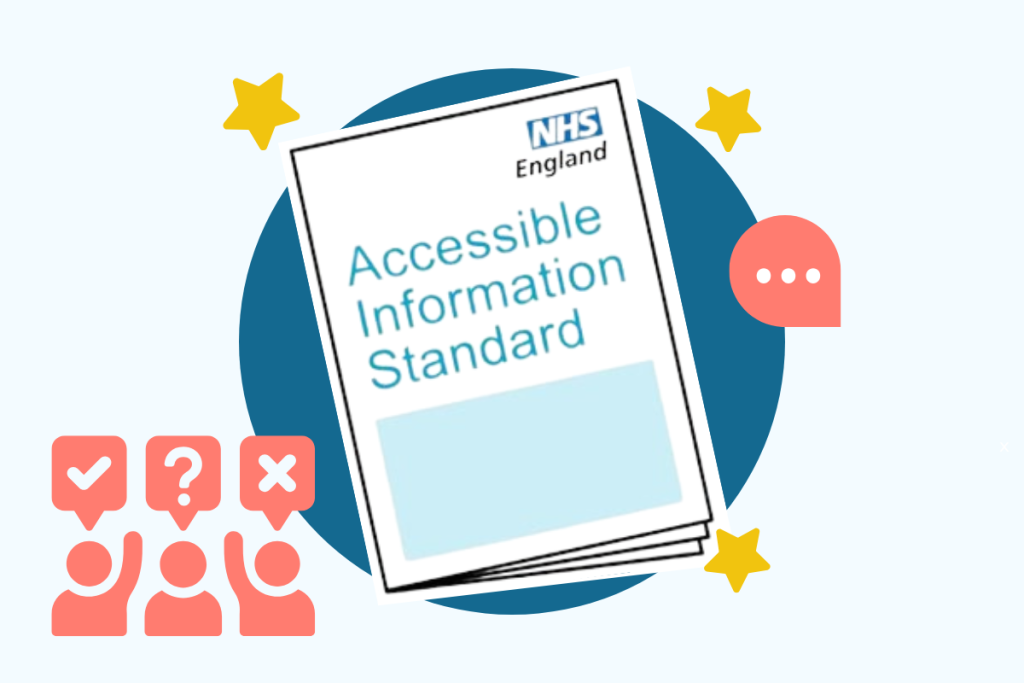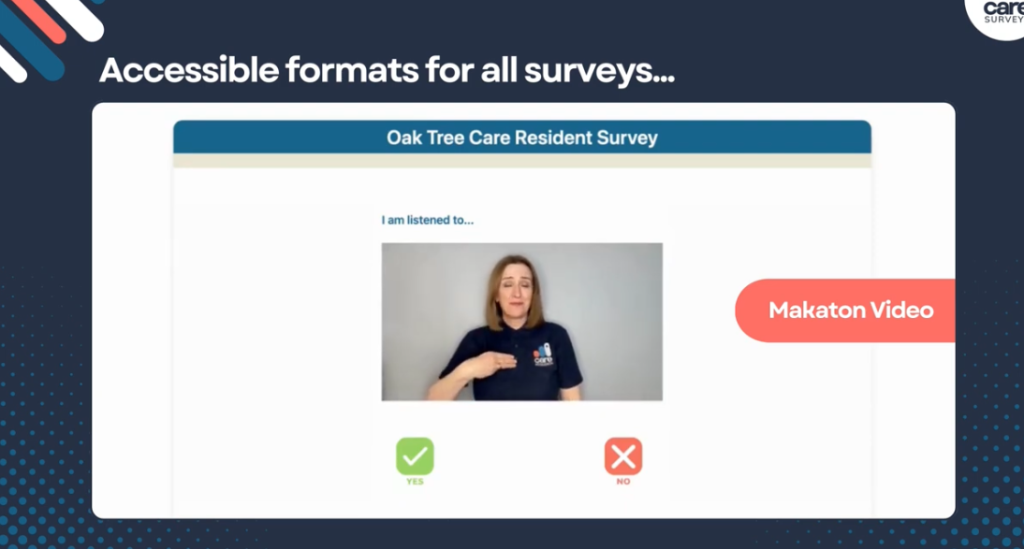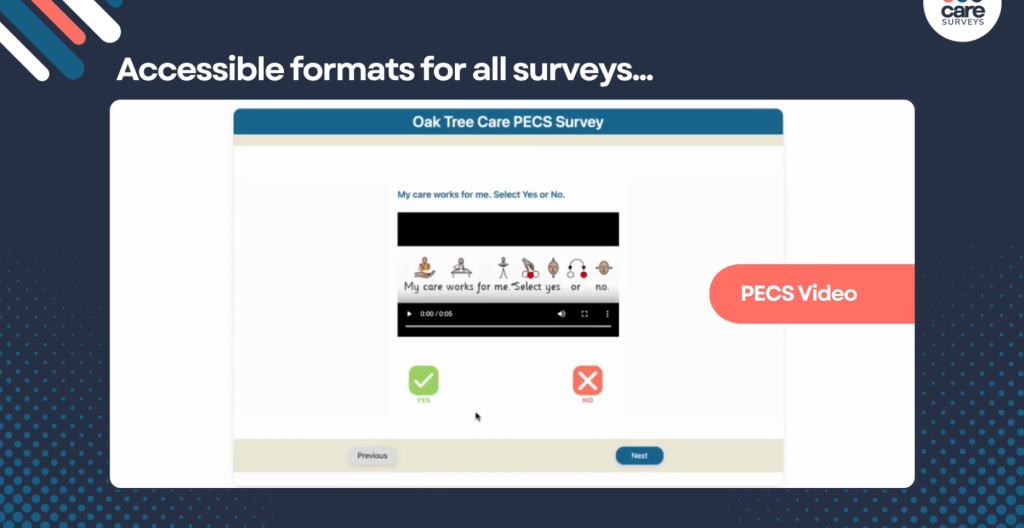What does it mean for care providers?
NHS England has recently refreshed the Accessible Information Standard (AIS) – an important framework that ensures people using health and social care services can get information in a format they understand and communicate in a way that works for them.
For care providers, this update isn’t just a tick-box exercise – it’s about making sure that every person you support feels heard, respected, and truly included. Importantly, it’s something the CQC will be looking at under the Responsive key question when assessing your service.
What’s New in the Updated Standard?
The AIS already required services to:
- Identify people’s information and communication needs
- Record those needs clearly
- Flag them so staff can see and respond appropriately
- Share them across teams and systems
- Meet those needs consistently
The update adds a new step: Reviewing Needs.
This means providers must now regularly check that the information and communication needs recorded are still accurate and relevant. For example, someone’s needs may change over time due to health conditions, cognitive ability, or personal preference.
In addition, a new self-assessment framework has been introduced. Developed with feedback from pilot sites, this tool is designed to help you:
- Monitor how well you’re meeting the AIS
- Identify areas for improvement
- Create a clear, targeted action plan
Why This Matters
The refreshed standard reinforces obligations under the Equality Act 2010, ensuring people are not disadvantaged when accessing care. It also makes implementation more practical for services of all sizes – whether you’re a large care group or a smaller independent provider.
From a regulatory perspective, the CQC will be paying close attention to how well you meet the AIS under the quality statement on providing information. Being proactive now will not only support compliance but also demonstrate a strong commitment to inclusion and person-centred care.
How Care Surveys Can Support You
Meeting the Accessible Information Standard is about more than policies – it’s about practice. At Care Research, we know that feedback and communication are at the heart of high-quality care, which is why Care Surveys are designed to be fully accessible.
We can provide surveys in formats that meet a wide range of needs, including:
- Makaton – supporting individuals with learning disabilities and communication difficulties
- PECS (Picture Exchange Communication System) – ideal for those who prefer or require visual communication
- Video surveys – helping those who engage better with spoken or visual information
- Simple text versions – ensuring clarity and ease of understanding
By offering feedback opportunities in accessible formats, you can:
- Show the CQC clear evidence of meeting AIS requirements
- Gain meaningful insights from people who might otherwise struggle to share their views
- Strengthen your service’s responsiveness and inclusivity
Final Thoughts
The updated Accessible Information Standard is a positive step forward in ensuring equity, dignity, and voice for everyone using health and social care services. By reviewing needs regularly and using tools like the self-assessment framework, providers can stay ahead of compliance while genuinely improving the care experience.
If you’d like support in gathering feedback in accessible formats, Care Surveys can help. Together, we can make sure every voice is heard.


